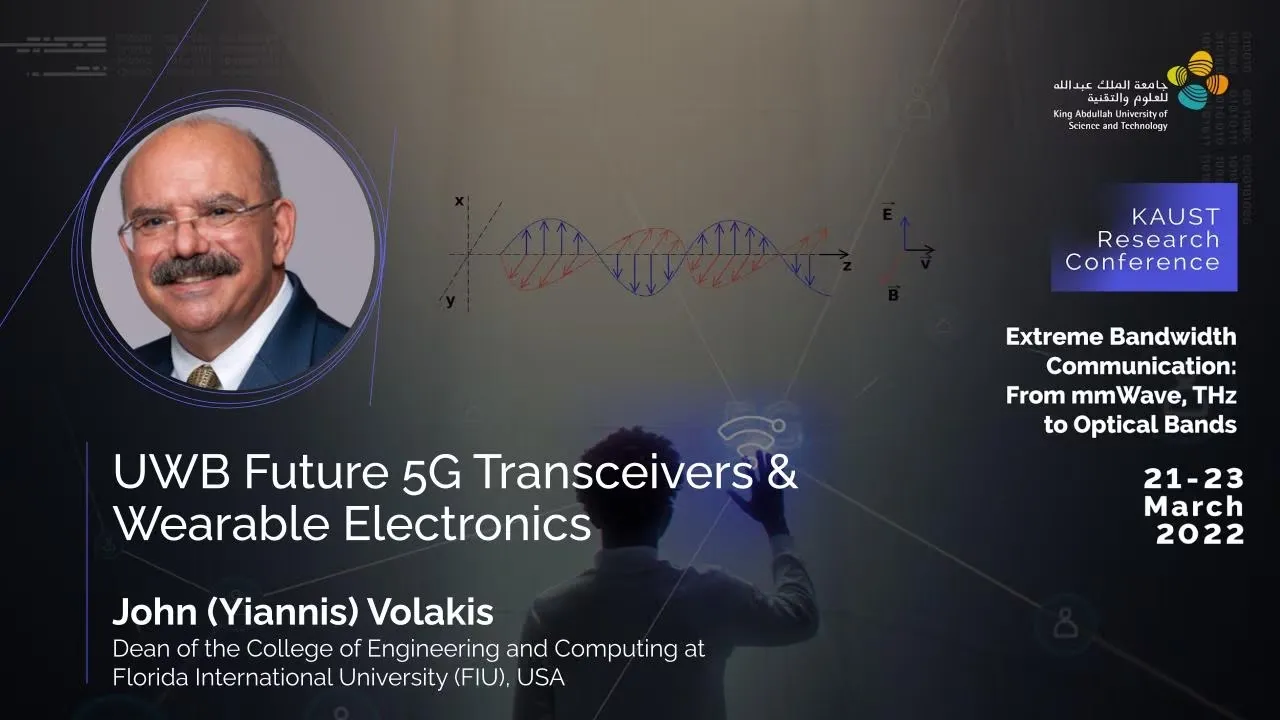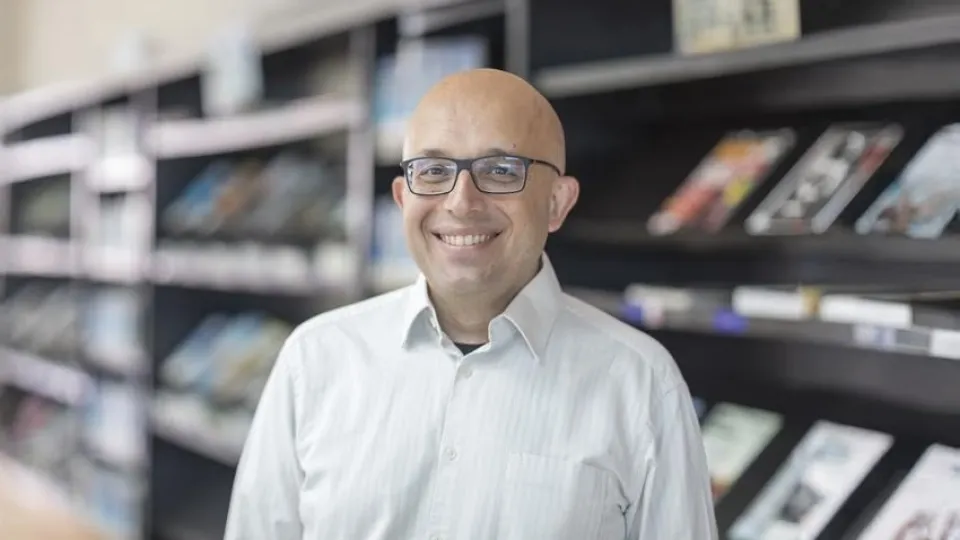
Prof. John (Yiannis) Volakis: UWB Future 5G Transceivers & Wearable Electronics
- John (Yiannis) Volakis, Dean of the College of Engineering and Computing at Florida International University (FIU), USA
KAUST Library
Overview
Abstract
Future communication links (future 5G) will require higher data rates, multiple beams, and higher transmit/receive gains, in addition to smaller weight, cost, and power. With the growing interest for reduced size platforms and the requirement for ultra-wideband (UWB) performance to address multi-functionality, there is a strong need for UWB RF front-ends with ultra flexible interfaces. The latter will include millimeter wave and THz capabilities to enable increased spectral efficiency, multi-functionality and security. Simultaneous transmit and receive (STAR) transceivers are also becoming a focus for the coming decade.
Further, in recent years, a variety of flexible fabric-based electronics have been proposed. To this end, our team proposed a new class of conductive textiles that have demonstrated unique capabilities in terms of flexibility, durability and manufacturing-ease using standard automated embroidery machinery. These electronic threads (E-threads) have the capability to generate fully embroidered microwave circuitry that has the same electrical properties as traditional microwave circuits printed on PCBs. As such, a new class of wearable devices that are fully integrated and inconspicuously placed within clothing is possible.
This presentation will focus on innovative methods for handling UWB communications with RF front end and back-end capabilities having historically low power and game-changing frequency-independent operation. They will include low power MIMO and beamforming across large bandwidths, from MHz to millimeter wave bands. Challenges in realizing future textile-based electronic devices, including wearable wideband transceivers will be presented. Among them, reliable wearable interconnects, chipsets that are less bulky and integrated with the textile circuitry, and manufacturing challenges will be discussed.
Brief Biography
John L. Volakis is the Dean of the College of Engineering and Computing at Florida International University (FIU), and a Professor in the Electrical and Computer Engineering Dept. He is an IEEE, AAAS, NAI, URSI and ACES Fellow. Prior to coming to FIU, he was the Roy and Lois Chope Chair in Engineering at Ohio State and a Professor in the Electrical and Computer Engineering Dept. (2003-2017). He also served as the Director of the Ohio State Univ. ElectroScience Laboratory for 14 years. His career spans 2 years at Boeing, 19 years on the faculty at the University of Michigan-Ann Arbor, and 15 years at Ohio State. At Michigan he also served as the Director of the Radiation Laboratory (1998-2000).
Prof. Volakis has 39 years of engineering research experience, and has published over 445 journal papers, 950 conference papers, and over 30 chapters. In 2004, he was listed by ISI Web of Science as one of the top 250 most referenced authors, and his google h-index=72 with over 26500 citations, among the largest in Engineering. He mentored over 100 Ph.Ds/Post-Docs and has written with them 43 papers which received best paper awards. He is one of the most active researchers in electromagnetics, RF materials and metamaterials, antennas and phased array, RF transceivers, textile electronics, millimeter waves and terahertz, EMI/EMC as well as EM diffraction and computational methods. He is also the authors of 8 books, including the Antenna Handbook, referred to as the “antenna bible.” His research team is recognized for introducing and/or developing 1) hybrid finite method for microwave engineering, now defacto methods in commercial RF design packages, 2) novel composite materials for antennas & sensor miniaturization, 3) a new class of wideband conformal antennas and arrays with over 30:1 of contiguous bandwidth, referred to as tightly coupled dipole antennas, already garnering over 6 million citations, 4) textile surfaces for wearable electronics and sensors, 5) battery-less and wireless medical implants for non-invasive brain signal collection, 6) diffraction coefficients for material coated edges, and for 7) model-scaled radar scattering verification methods.
